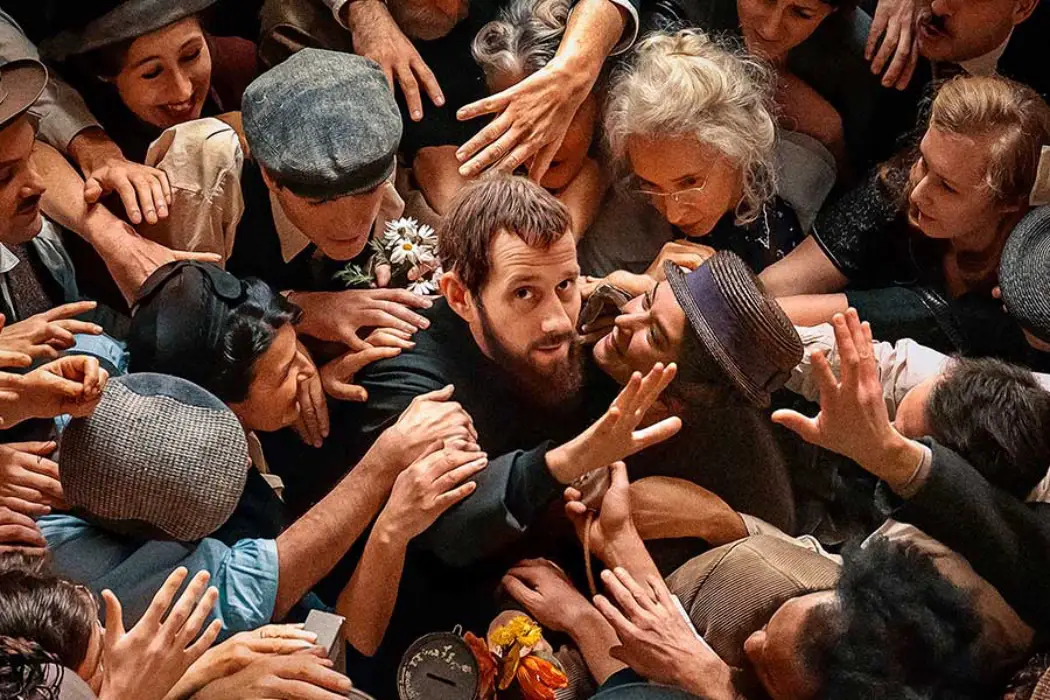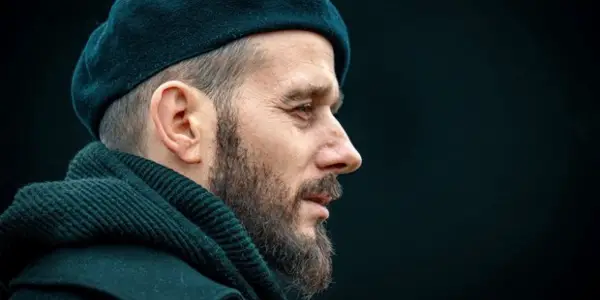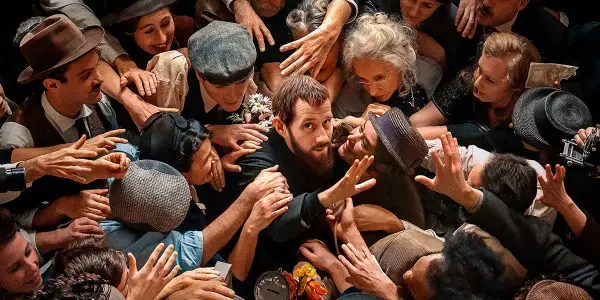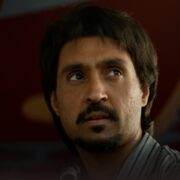Cannes Film Festival 2023: L’ABBÉ PIERRE

Stephanie Archer is 39 year old film fanatic living in…
War films are an unceasing means of artistic fashion and dramatic storytelling, and these stories, perspectives, and terror come from a well that never threatens to run dry. Too often though, we do not see the aftermath of war, the poverty and hopelessness that is left in the wake of destruction. This year’s Cannes Film Festival brings us to the heart of France following the end of World War II in Frédéric Tellier‘s L’abbé Pierre. A dramatized account of the life of priest Abbe Pierre, L’abbe Pierre dives deep into the heart of the impoverished following the war and the man who was resolved to end it.
Finding Strength
As much as the film leans into biopic territory, it does not depict Abbe Pierre’s (Benjamin Lavernhe) earlier life as the child of a French bourgeoisie, rather starting at the moment when God’s challenge is presented to him. The film opens with his life at a monastery. a sequence of shots establishing the rigid and meticulous life he has dedicated himself to, and a final moment showing Henri Grouès, as he was named at birth, collapsing at the alter. As he awakens in his room, he is met by a fellow Brother of the Cloth who tells him he is not strong enough for this particular monastery, further advising him he should seek out a calmer and easier priesthood.

L’abbé Pierre does not allow the character or the audience time to ruminate long on these words, Abbe Pierre sitting in the hay with a friend before quickly being shown at war. It does take pause to let the words of Pierre’s friend François Garbit (Antoine Laurent) weigh on the film, fleshing out the direction the rest L’abbé Pierre will take through dialogue-driven devices. François tells Henri he can’t carry everything on his shoulders, and as war pushes the strength and voice within Henri to rise, audiences will see the weight of the world he not only acknowledges but has the strength to the shoulder.
While leading his men, Henri Grouès finds his strength and his voice. But he also begins to understand the ambiguity of sin. By embracing and understanding the ambiguity himself, he is able to extend the same understanding to those he would later take into his homeless shelter. There is not one big moment that breaks down the rigidity of the religion he vehemently set out to practice at the beginning of the film, but a series of moments that culminate into Abbe Pierre taking charge to save the lives so many looked down upon. Whether it be the Jews and rebels in Germany-occupied France or those freezing to death in the streets the winter following the end of the war, Abbe Pierre opened his arms to them all. And while much of the film revolves around his opening a homeless shelter following the end of World War2, the film in its entirety captures the strength of his voice to rally a nation to stand beside him firm and resolute to help others in need.
The ups and downs
L’abbe Pierre is gorgeously filmed, much of the framework, camera movements and lighting crafting a spectacular display of artistic craft. Yet, the narrative feels at times like a punch card, the sequences felling more of a chapter book rather than a flowing art that matches its showmanship. It is not without its captivating moments, L’abbe Pierre giving each of these moments the time to flesh out and show the selfless nature of Abbe Pierre and those he helped over the decades. He becomes proof of a social experiment – the chain of selflessness that occurs when one helps another. Much of the power of Abbe Pierre is in the speeches he spoke that rallied a nation, yet the film fails to maintain this power, becoming more of a film of diction rather than art

One of the standouts in the film though is Benjamin Lavernhe. There is an awareness in the eyes that constantly supersedes your initial take on the character. His body may be frail and sickly at times, but his mind is resolute. Lavernhe perfectly captures these moments, from the heartbreak of rejection by the monastery to the acceptance of his end of life just before he lays himself to sleep. There is a commitment in his performance that demands your attention until the very end. Where the editing and fluidity of the film fail to engage at times, Lavernhe is relentlessly in charge of your attention.
Conclusion:
While far from a Cannes Film Festival favorite, L’abbe Pierre stuns with incredible, reflective artistry, designing an exquisite stage Benjamin Lavernhe dominates from start to finish
L’abbe Pierre premiered at the 2023 Cannes Film Festival.
Watch L’abbe Pierre
Does content like this matter to you?
Become a Member and support film journalism. Unlock access to all of Film Inquiry`s great articles. Join a community of like-minded readers who are passionate about cinema - get access to our private members Network, give back to independent filmmakers, and more.













